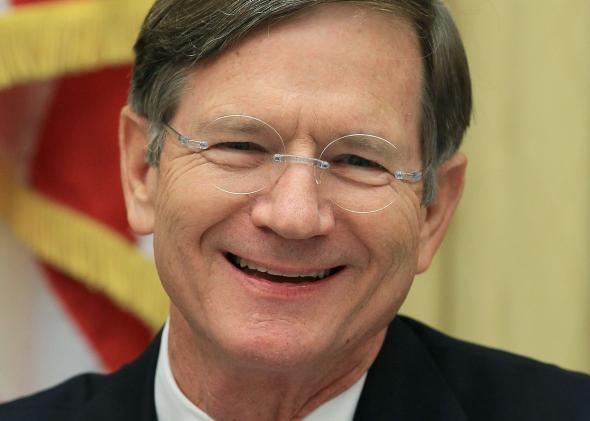Why Conservative Politicians Don’t Like Political Science

Photo by Mark Wilson/Getty Images
The news wasn’t all bad. H.R. 4660, an appropriations bill that passed the House last Friday, provides $7.4 billion for the National Science Foundation for 2015, increasing its budget by 3.2 percent. The total sum actually exceeds what President Obama requested. Science is a good place for government to direct funds: More basic research comes from public projects than private ones. Government-supported science yields longer-term gains compared with industry, where development (rather than original discovery) is emphasized.
But conservatives don’t value all fields equally. Last week’s House appropriations bill freezes new spending on social science grants through an amendment Texas Rep. Lamar Smith introduced with Republican Majority Leader Eric Cantor. Money for political science is put toward physical sciences instead. Political science—along with other fields such as economics and climate change research—has been under sustained attack by conservatives in recent years. Sen. Tom Coburn (along with Smith in the House) has been an active crusader against disciplines he considers “wasteful” or “misallocation[s] of resources.” Last year, Coburn pushed through an appropriations amendment barring the NSF from giving out “non-essential” political science grants. Recently, the House Science Committee, which Smith chairs, approved FIRST, a bill that cuts research funding for social sciences and climate studies.
But social science research is patently useful—it improves policymaking (something that ought to be of interest to a group of legislators). Every American winner of the Nobel Prize in Economics since 1998 has benefited directly from government grants. The countless times we look to studies to guide legislative decisions is proof positive of its impact.
Even if you think waste ought to be curbed, there are other, far more meaningful excesses for Congress to tackle—sugar subsidies, prison reforms, take your pick of things, really—before you start eliminating meager research grants. If political science research is not a priority, working so hard to limit support for it surely shouldn’t be, either.
To be fair, congressional scrutiny over government grants isn’t new. In the 1970s and ’80s, Sen. William Proxmire, a Democrat from Wisconsin, lampooned what he thought were frivolous projects with “Golden Fleece Awards,” issued in his regular press releases. Proxmire’s criticism took aim at everyone from the Department of Defense to Ronald Reagan’s inaugural committee. His initial skepticism about the SETI Institute is a case in point of misdirected government judgment about science: Proxmire withdrew the Golden Fleece Award he gave it in 1978, recognizing the value of the institute’s work.
But why exactly is political science funding a misallocation? Is there something being stifled that the supporters of these measures can point to? There can’t be, because that’s not how science, of any kind, works. The point of studying things we don’t understand is that new knowledge brings its own rewards in unpredictable ways. The “Golden Goose Awards,” given to honor “seemingly obscure studies that have led to major breakthroughs” with “significant societal impact,” are now given out by a scientific consortium precisely to make this point. (It is a play on and rebuttal to those long-ago Proxmire gongs.) Last year it was given to a study titled “College Admissions and the Stability of Marriage.” Findings from that 1962 paper led to key insights on matching kidney transplants.
Righting the “wrongs” of science allocations is also strangely at odds with the conservative claim to be champions of enterprise. Their approach is the opposite of one that encourages innovation, which requires a maximal free range of ideas. Rather, the current Republican rally against social and climate sciences has a more political bent. It is that these studies tend to find outcomes conservatives don’t like—about the consequences of inequality, or limiting democracy, or that anthropogenic climate change is a problem. Dressing up these budget cuts as fiscal responsibility isn’t fooling anyone.
The Senate Appropriations Committee is scheduled to mark up a version of the bill on Thursday. Hopefully it will leave out such senseless cuts.
